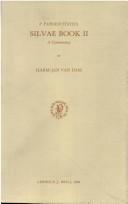| Listing 1 - 10 of 13 | << page >> |
Sort by
|
Book
Year: 2017 Publisher: Nijmegen: Vantilt,
Abstract | Keywords | Export | Availability | Bookmark
 Loading...
Loading...Choose an application
- Reference Manager
- EndNote
- RefWorks (Direct export to RefWorks)
Book
Year: 2018 Publisher: Nijmegen: Vantilt,
Abstract | Keywords | Export | Availability | Bookmark
 Loading...
Loading...Choose an application
- Reference Manager
- EndNote
- RefWorks (Direct export to RefWorks)
Book
Year: 2017 Publisher: Nijmegen: Vantilt,
Abstract | Keywords | Export | Availability | Bookmark
 Loading...
Loading...Choose an application
- Reference Manager
- EndNote
- RefWorks (Direct export to RefWorks)
Book
Year: 2020 Publisher: Nijmegen: Vantilt,
Abstract | Keywords | Export | Availability | Bookmark
 Loading...
Loading...Choose an application
- Reference Manager
- EndNote
- RefWorks (Direct export to RefWorks)
Book
Year: 2018 Publisher: Nijmegen: Vantilt,
Abstract | Keywords | Export | Availability | Bookmark
 Loading...
Loading...Choose an application
- Reference Manager
- EndNote
- RefWorks (Direct export to RefWorks)
Book
Year: 2018 Publisher: Nijmegen: Vantilt,
Abstract | Keywords | Export | Availability | Bookmark
 Loading...
Loading...Choose an application
- Reference Manager
- EndNote
- RefWorks (Direct export to RefWorks)
Book
Year: 2019 Publisher: Nijmegen: Vantilt,
Abstract | Keywords | Export | Availability | Bookmark
 Loading...
Loading...Choose an application
- Reference Manager
- EndNote
- RefWorks (Direct export to RefWorks)
Book
ISBN: 9789004530898 9789004124646 Year: 2001 Publisher: Leiden ;Boston Brill
Abstract | Keywords | Export | Availability | Bookmark
 Loading...
Loading...Choose an application
- Reference Manager
- EndNote
- RefWorks (Direct export to RefWorks)
This book contains the mature fruit of Hugo Grotius' political thought on church and state. It was finished in 1617, but Grotius' arrest prevented publication. For the first time Grotius' own Latin text is printed here, from two manuscripts. It is demonstrated that the claims made by the publisher of the first edition (1647), the source of all subsequent editions, are false. The first critical edition is provided with an extensive introduction, an English translation, a commentary, and elaborate indices. In an appendix texts concerning its context and genesis are printed. An earlier draft of De imperio was recently discovered. All material from this unpublished work has been integrated here. This fundamental, theoretical text, written for an international public, anticipates many views from later Grotian work.
Book
ISBN: 9789004530911 9789004124653 Year: 2001 Publisher: Leiden ;Boston Brill
Abstract | Keywords | Export | Availability | Bookmark
 Loading...
Loading...Choose an application
- Reference Manager
- EndNote
- RefWorks (Direct export to RefWorks)
This book contains the mature fruit of Hugo Grotius' political thought on church and state. It was finished in 1617, but Grotius' arrest prevented publication. For the first time Grotius' own Latin text is printed here, from two manuscripts. It is demonstrated that the claims made by the publisher of the first edition (1647), the source of all subsequent editions, are false. The first critical edition is provided with an extensive introduction, an English translation, a commentary, and elaborate indices. In an appendix texts concerning its context and genesis are printed. An earlier draft of De imperio was recently discovered. All material from this unpublished work has been integrated here. This fundamental, theoretical text, written for an international public, anticipates many views from later Grotian work.

ISBN: 9004071105 9004328173 9789004071100 9789004328174 Year: 1984 Volume: 82 Publisher: Leiden E.J. Brill
Abstract | Keywords | Export | Availability | Bookmark
 Loading...
Loading...Choose an application
- Reference Manager
- EndNote
- RefWorks (Direct export to RefWorks)
The five books of the Silvae bring together the occasional verses which Statius wrote in addition to his two epics. In these short descriptive poems Statius elaborates features taken from various genres into an original whole, in which description and eulogy play important roles. The main themes of the poems of his second book are consolation after bereavement and the contrast between nature and culture. The present work contains a general introduction, a text of Silvae II, a bibliography, and an index, together with a verse-by-verse commentary on the poems of this second book. This is the first commentary on a book of the Silvae since Vollmer's commentary on the whole of the Silvae of 1898. Emphasis is here placed on interpretation and moreover chiefly on the literary and stylistic aspects of the poems, which, compared with the epic poetry of Statius and his contemporaries, have hitherto received relatively little attention.
Statius, Publius Papinius --- Latin poetry --- Poésie latine --- History and criticism --- Histoire et critique --- Statius, P. Papinius --- Occasional verse, Latin --- Laudatory poetry, Latin --- Statius, P Papinius --- Rome --- In literature --- -Occasional verse, Latin --- -Rome in literature --- Latin occasional verse --- Latin laudatory poetry --- Rome in literature. --- History and criticism. --- Publius Papinius Statius --- Statius, Papinius --- Stace --- Poésie latine --- In literature. --- Statius, P. Papinius (Publius Papinius) --- Occasional verse, Latin - History and criticism --- Laudatory poetry, Latin - History and criticism --- Statius, P Papinius - (Publius Papinius) - Silvae --- Rome - In literature
| Listing 1 - 10 of 13 | << page >> |
Sort by
|

 Search
Search Feedback
Feedback About UniCat
About UniCat  Help
Help News
News